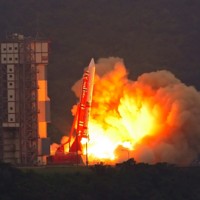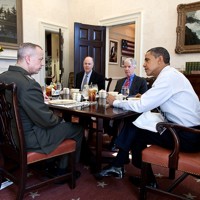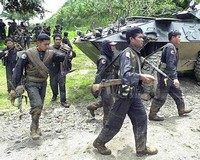Defense & Security Archive
Free Newsletter

Japan passed a law in June allowing the development of military space programs. In an email interview, Saadia M. Pekkanen, Job and Gertrud Tamaki professor at the Jackson School of International Studies at the University of Washington, discussed the strategic trajectory of Japan’s space program.* WPR: What is the current scope of Japan’s space program, and what are its priority programs, both short-term and long-term? Saadia M. Pekkanen: Japan has sophisticated rocket and satellite capabilities that allow it to continue up the ladder in space technologies. It has advanced liquid and solid-fuel rockets, as well as multiple satellite programs. These […]

Last week, I noted one of the ironies of the U.S. effort in Afghanistan since 2009: From the perspective of civil-military relations, the process worked. Regardless of one’s opinion of the Obama administration’s strategy in Afghanistan and despite the high degree to which the U.S. government and its allies have struggled to implement that strategy, the division of labor between civilian officials and military officers in formulating the strategy itself functioned more or less according to design. In light of the reaction the column generated, I’d like to examine civil-military relations in the United States more broadly. Today, I will […]

More than 20 years after the collapse of the Soviet Union, with most of the world’s attention having shifted to the threat of international terrorism, the Philippines and Peru are still struggling to pacify their countries’ communist insurgencies. Rather than fading into history, the Philippines’ New People’s Army (NPA) and Peru’s Shining Path have updated their rhetoric to reflect contemporary concerns in an effort to make their ideologies relevant to the “masses” in the post-Cold War era. The NPA and Shining Path, which were founded in 1969 and 1982, respectively, have not abandoned their discourse on Marxism and land reform, […]
